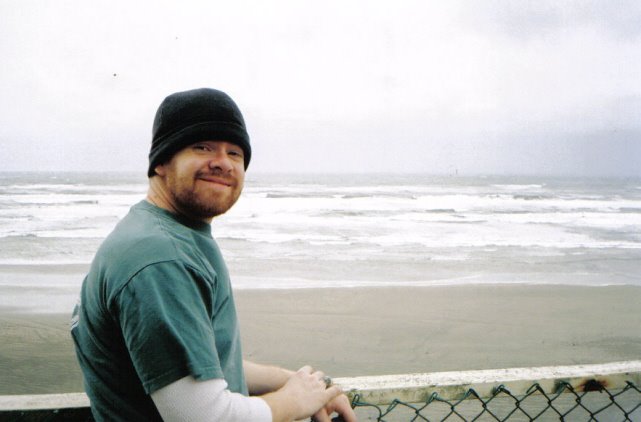Fed. Rate, Meet the Voter.
Many people are attempting to figure out the goings on with our nation's economy. Questions aboud for the economically-minded American such as, "Has the housing market bubble really popped?" "What about my retirement fund?" "How will I pay for my kids to attend college?" "Will a Big Mac really cost $10 USD in 2050?" Though I turned pseudo-vegetarian nearly a decade ago (I eat nothing that once had lungs, but gills are fine by this "Oregon coastie",)
Happening along the intraweb as I do, no differently than the billions of other globally-minded bloggers, an MSNBC article under the guise of Breaking News led me to click its link. Besides the article itself, this chart to the right popped up. I gave this some thought and realized that the years amde all the difference when looking at the tell-tale dip near the right side of the graph.
this chart to the right popped up. I gave this some thought and realized that the years amde all the difference when looking at the tell-tale dip near the right side of the graph.
See, most economists make the assertion that any new government change will make a significant loss in the nation's economy. There's nothing new about that. It happens every time we get a new President in the U.S. With the uncertainty in who was to become President in 2000, the dip was a little stronger as first, and then 11 Septeber happened. However, the grapgh shows that the loss was constant in the first eight months of Bush's Presidency, and simply continued at the same pace (NOT as a sharp drop) from the WTC, Pentagon and United Flight 93 attacks. What stoped the drop? Well, again, economists can speculate that great things were at foot, but the best and layman response is simply: war.
The beginning of combat operations in Afghanistan, O.E.F., happened a month after the attacks and the grapgh shows that this slowed but didn't stop the economic drop off. It wasn't until mid 2004 when the growth began. Why?
What happened in May-June 2004 to boost the economy? The 2004 election? Google?
Happening along the intraweb as I do, no differently than the billions of other globally-minded bloggers, an MSNBC article under the guise of Breaking News led me to click its link. Besides the article itself,
 this chart to the right popped up. I gave this some thought and realized that the years amde all the difference when looking at the tell-tale dip near the right side of the graph.
this chart to the right popped up. I gave this some thought and realized that the years amde all the difference when looking at the tell-tale dip near the right side of the graph.See, most economists make the assertion that any new government change will make a significant loss in the nation's economy. There's nothing new about that. It happens every time we get a new President in the U.S. With the uncertainty in who was to become President in 2000, the dip was a little stronger as first, and then 11 Septeber happened. However, the grapgh shows that the loss was constant in the first eight months of Bush's Presidency, and simply continued at the same pace (NOT as a sharp drop) from the WTC, Pentagon and United Flight 93 attacks. What stoped the drop? Well, again, economists can speculate that great things were at foot, but the best and layman response is simply: war.
The beginning of combat operations in Afghanistan, O.E.F., happened a month after the attacks and the grapgh shows that this slowed but didn't stop the economic drop off. It wasn't until mid 2004 when the growth began. Why?
What happened in May-June 2004 to boost the economy? The 2004 election? Google?







<< Home